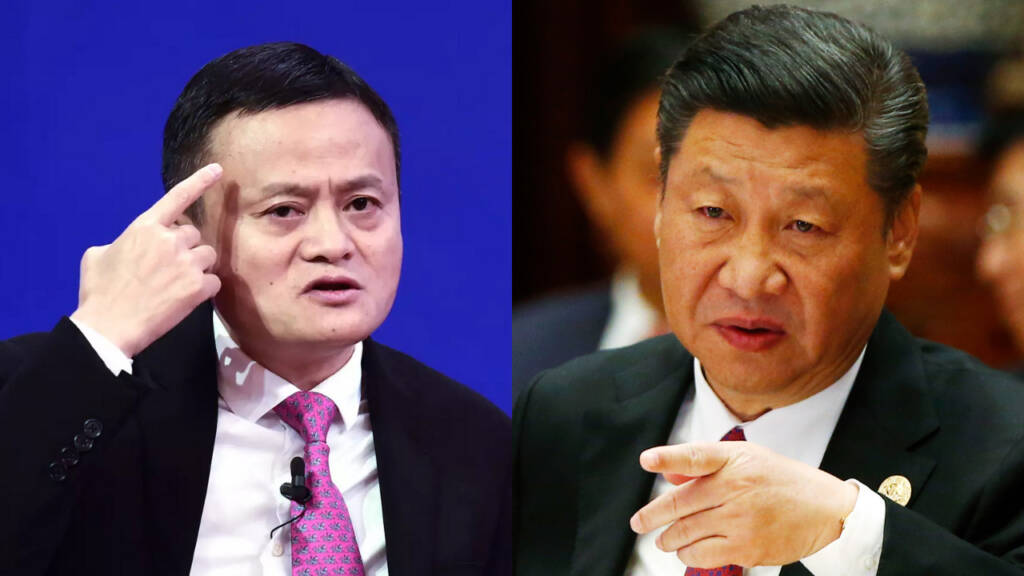Chinese President Xi Jinping’s paranoia of rich businessmen just keeps growing bigger. Following his tussle with Jack Ma, the Alibaba founder and China’s most popular billionaire, Jinping is on a campaign to ensure that Chinese companies cannot raise money from the public. This is a part of his drive to ensure that no other company becomes an Alibaba, and no other businessman becomes a Jack Ma.
In fact, Jinping is diluting China’s registration-based IPO system through informal arm-twisting and arbitrary regulation curbs. The Jinping administration is, of course, looking to ensure that raising capital through stock listings doesn’t remain a cakewalk in mainland China.
The registration-based IPO system was an innovation that caught up with Chinese policymakers as early as November 2013. Last year, Shanghai’s STAR Market adopted it and earlier this year, Shenzhen’s ChiNext board also adopted the new IPO system.
The registration-based IPO is different from China’s general approval-based IPO system, which involves strict scrutiny of companies. The general IPO system in China is stringent- it requires sustained profitability before an entity can get regulatory approval to go public.
On the other hand, registration-based IPO is much more transparent and market-oriented. Once, companies disclose certain information about their business to investors, they are allowed to go public.
However, things are going downhill in China all over again. First signs of Jinping’s attempts to create hurdles in stock market listings emerged when his administration halted a record $37 billion IPO for Alibaba’s fintech entity- Ant Group Co.
Thereafter, Chinese regulators have slapped a new set of conditions on companies going through the new, registration-based IPO process. As per Caixin, the ChiNext board has been giving window guidance, an informal arm-twisting tactic, to several investment banks. IPO applicants are being told that they must have reported a minimum net profit of 50 million yuan ($7.6 million) in the most recent year, to go public.
Jinping administration’s message is loud and clear- if you are a small firm, you will remain small. More IPO application rejections are cropping up at Shanghai’s STAR Market and Shenzhen’s ChiNext- the only stock exchange markets in mainland China to adopt the registration-based IPO system.
ChiNext rejected a Jiangsu-based software developer’s application- the first rejection since the decade-old board decided allowed registration-based IPO applications in June this year. On the other hand, STAR Market has rejected two applications- one in September and the other in November.
The tighter regulatory scrutiny has also led to a slowdown in the IPO application process, which is creating a logjam of applications. This is helping Jinping administration in depriving small firms of going public, raising capital, and becoming bigger both in terms of wealth and size of operations.
Meanwhile, China Securities Regulatory Commission (CSRC)- the main regulator of the securities industry in China, is however justifying the fetters on Chinese companies in the name of investor protection.
It said, “Improving the quality of publicly listed companies should be an important goal of supervising them.” CSRC has also advised the Shanghai and Shenzhen stock exchanges to serve as gatekeepers and assume regulatory responsibilities over IPO reviews and other processes.
In fact, China could also be looking at more delistings. Yan Qingmin, CSRC Vice-chairman said, “For the ‘black sheep’ who are seriously fraudulent in financial records and ‘zombie shells’ that lack the ability to sustain their operations … they must be forced to delist before problems boil over.”
So, even the companies who are already listed on Chinese markets may be kicked out, if the Chinese Communist Party (CCP) feels that a particular firm is “seriously fraudulent”. The Jinping administration is not only making it more difficult for Chinese companies to get listed, but also ensuring that staying listed itself becomes a herculean task.
Jinping has therefore made up his mind to stop companies from going public. And since companies can’t go public, they will never be able to become big enough to make Xi Jinping and the CCP insecure.
